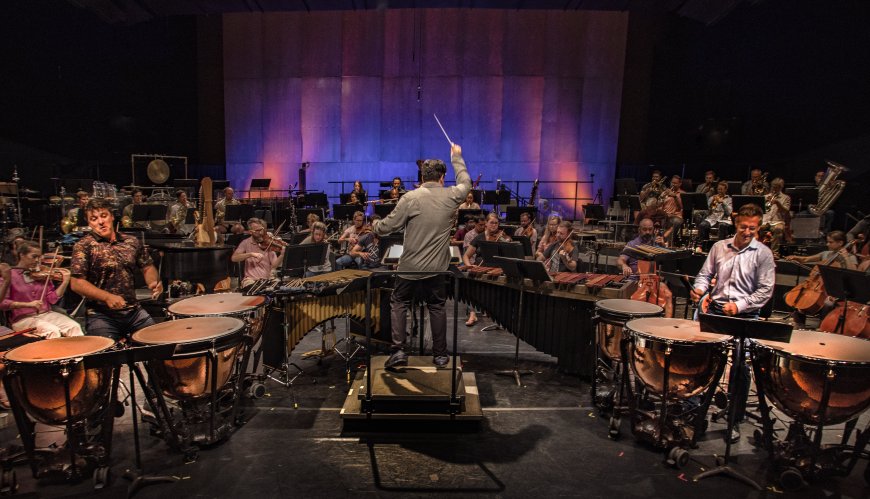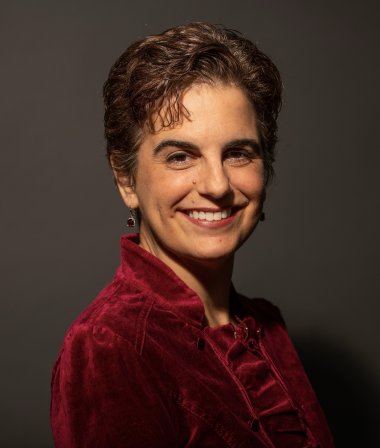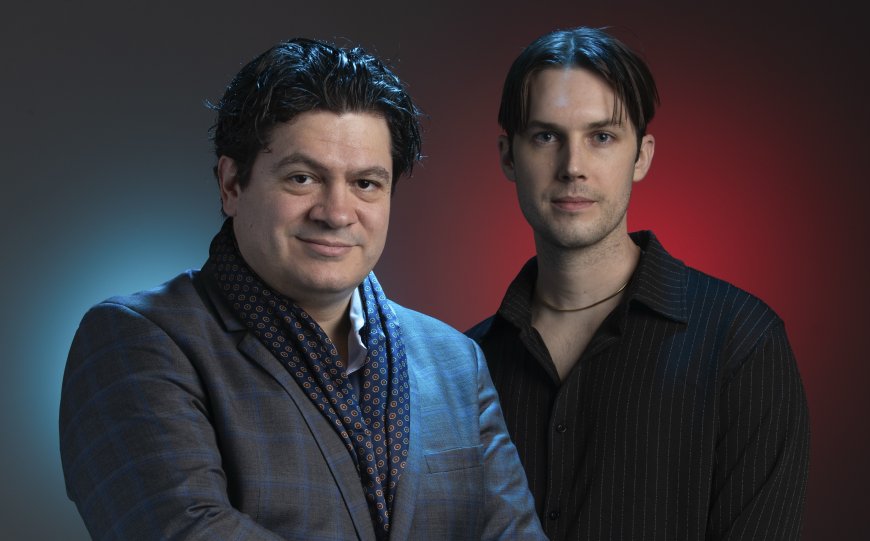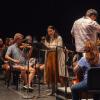
In 2025, the Cabrillo Festival of Contemporary Music, one of the country’s leading presenters of new music, can also boast a storied past, going back 62 years to its founding in the Santa Cruz County town of Aptos — the word for “the people” in the language of the Indigenous Awaswas tribe.
As the Cabrillo Festival, with all its service to “new and unusual” music, announces its upcoming season, set to run July 27 – Aug. 10, the organization is simulatenously reliving wonderful old memories.
The early 1960s saw composers Lou Harrison and Robert Hughes beginning the festival in and around the Sticky Wicket coffeehouse. In the years since, Cabrillo has acquired a unique musical legacy: 180 world premieres, 80 U.S. premieres, 185 West Coast premieres, countless local premieres, and the participation of more than 350 composers.
Music directors from Gerhard Samuel to Carlos Chávez, Dennis Russell Davies, and Marin Alsop have led many memorable performances. (One that still stands out for this writer is 90-something-year-old Nicolas Slonimsky playing the piano with an orange.) Along the way, the festival has championed not just new and experimental music but human rights, racial and gender equality, and inclusion.
Now, Cabrillo is facing new challenges in the current political climate. Earlier this month, the festival shared on social media that an ad announcing its 2025 season had been rejected by Meta, Facebook’s parent company.
According to Cabrillo, the reason Meta gave for why the ad wasn’t accepted was that the post “didn’t align with [the tech company’s] policies regarding ‘social issues, elections, and politics.’”
Programming for the upcoming season includes “a celebration of 50 years of LGBTQIA pride in Santa Cruz and powerful explorations into American history, human rights, and democracy,” themes highlighted in the proposed ad.
Though the post was later accepted by Meta (with the company citing a machine error), the festival has nonetheless decided to pause its social media advertising efforts and to focus instead on marketing “that aligns better with our values.”
“Elevating colorful and courageous voices has been intrinsic to the spirit of the festival since day one,” says current Cabrillo Music Director Cristian Măcelaru. “Lou Harrison’s foundational impact and joyful activism, Marin Alsop’s groundbreaking career and bold artistic vision, and many other queer voices have been integral to shaping who we are — I am so proud to further their legacy as we remain firmly grounded in our values of inclusion.”

The world premieres this summer include a new orchestral song cycle by Stacy Garrop on texts by Frederick Douglass and Susan B. Anthony (scheduled for Aug. 2) and a queer-themed multidisciplinary work (title to be announced) by Cabrillo Creative Lab composer Darian Donovan Thomas (Aug. 9). Both pieces are festival commissions.
“It has been such a rewarding experience to delve into the shared history of Frederick Douglass and Susan B. Anthony,” Garrop tells SF Classical Voice. “I’m thankful to Cabrillo for giving me the resources and a lengthy duration for the work — 26 minutes — so I could shape the piece’s narrative over the 40 years that [these two historical figures] knew each other.
“I look forward to working once again with the Cabrillo Festival Orchestra, along with guest conductor Daniela Candillari, baritone Sidney Outlaw, and soprano Michelle Areyzaga, in bringing Frederick and Susan B. to life this summer.”
Two more highlights can be found on the festival’s final concert (Aug. 10): a performance of Jake Heggie’s 2024 song cycle Good Morning, Beauty (a Cabrillo co-commission), with text by Taylor Mac and here slated to feature mezzo-soprano Nikola Printz, and the world premiere of As Juniper Storms by Cabrillo Emerging Black Composers Prize winner Tyson Gholston Davis.
Davis says of his piece: “The Cabrillo Festival has long stood out to me as a place where new music isn’t just welcomed but celebrated. Being commissioned by Cabrillo gave me a real vote of confidence in my voice as a composer, and it makes me feel part of a larger artistic community that values risk-taking. As Juniper Storms continues my exploration of Helen Frankenthaler’s paintings, but this time with the full force and color of the orchestra. I’m thrilled to have the work premiered in Santa Cruz this summer.”
Cabrillo’s long-standing advocacy for women composers continues this season with performances of works by Jennifer Higdon, Karen LeFrak, Missy Mazzoli, Rene Orth, Nina Shekhar, Anna Thorvaldsdottir, Aleksandra Vrebalov, and Julia Wolfe, among others.

“Especially at this tumultuous time, we are firmly grounded in our values of inclusion and access to the creative process — a spirit that is embedded in our festival model,” says Cabrillo Executive Director D. Riley Nicholson.
“We work to deepen everyone’s connection to the art form, from young music students to the most preeminent artists today, from orchestral aficionados to those who have never heard an orchestra before.
“We break down barriers through free open rehearsals, livestreams, radio broadcasts, composer talks, professional development opportunities, community partnerships, and more; we’re building a more inclusive future for orchestral music where everyone belongs.”
All events are held at the Santa Cruz Civic Auditorium. Tickets range from $24 to $92 for individual concerts and from $312 to $368 for full subscriptions. Many events are free and open to the public.




